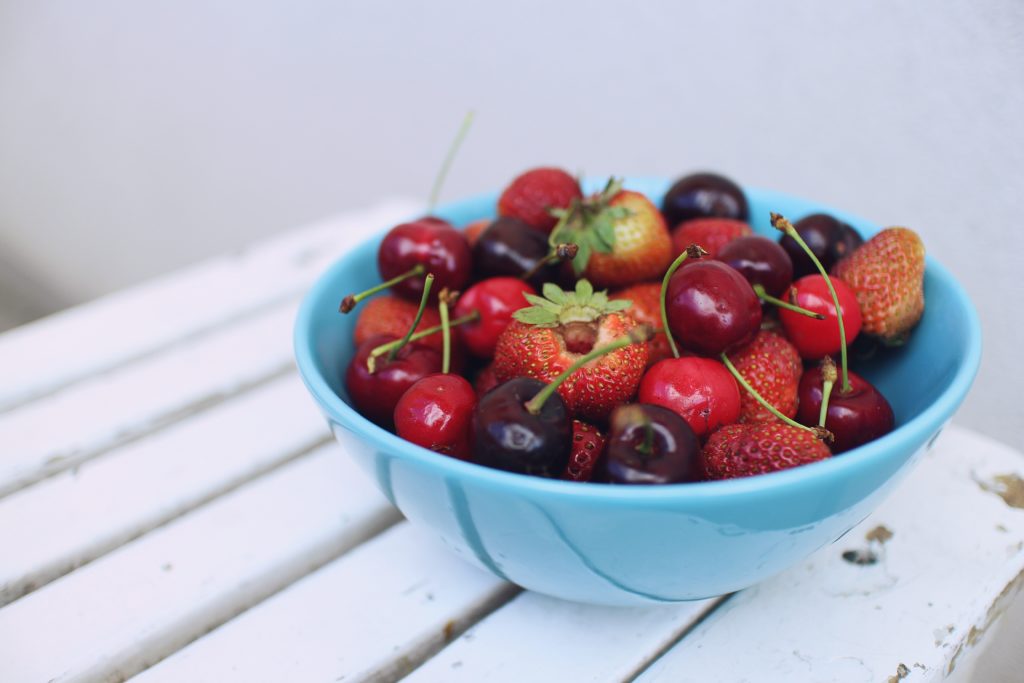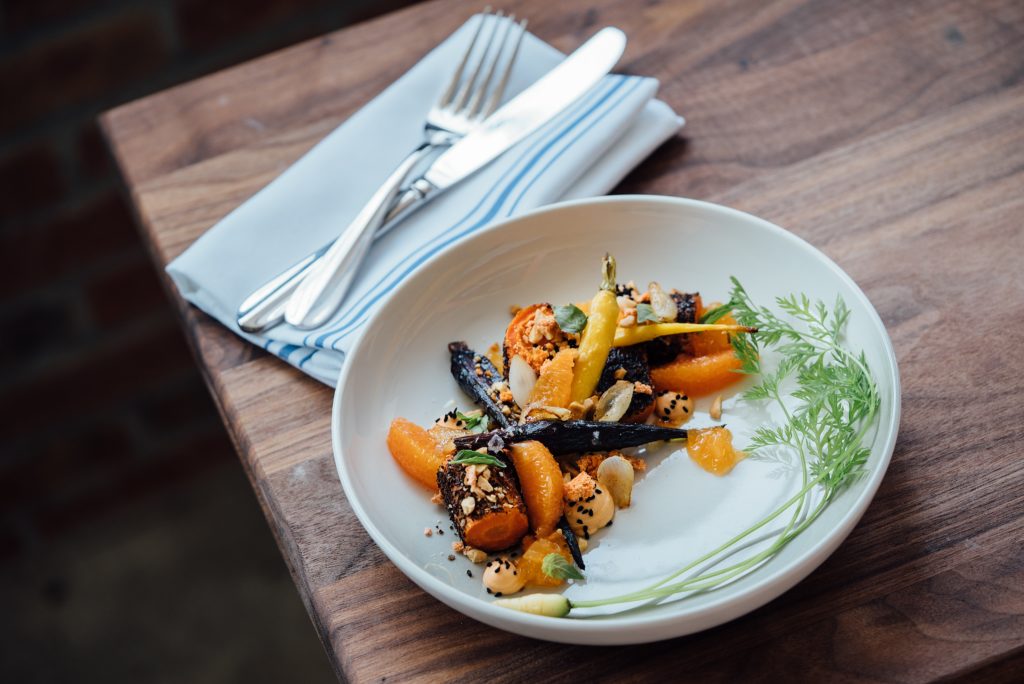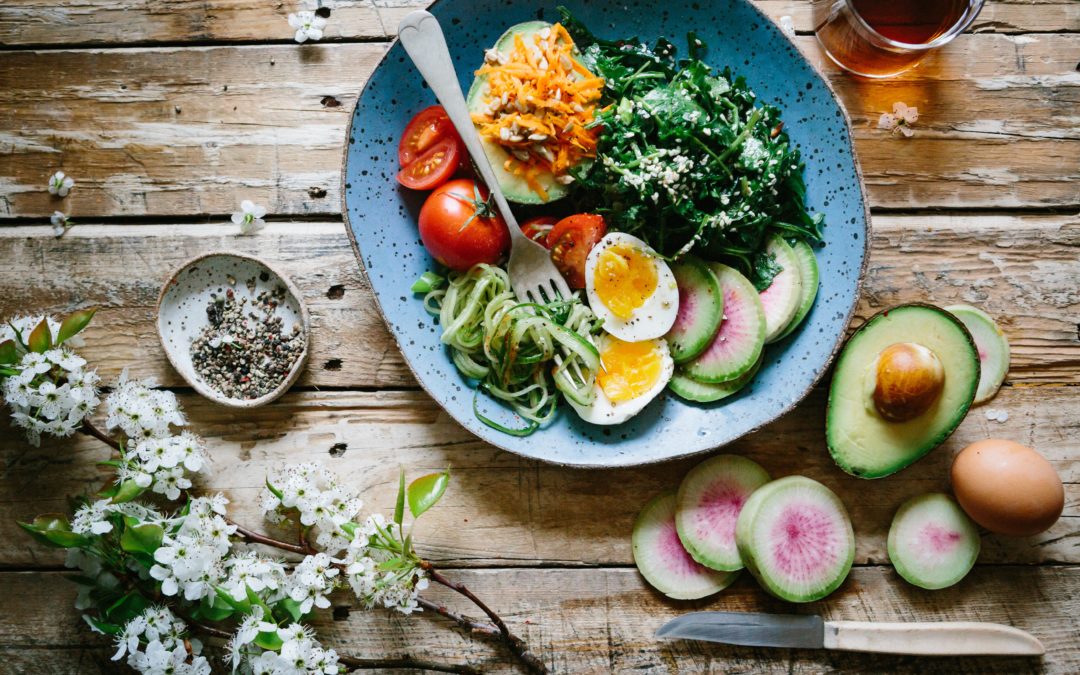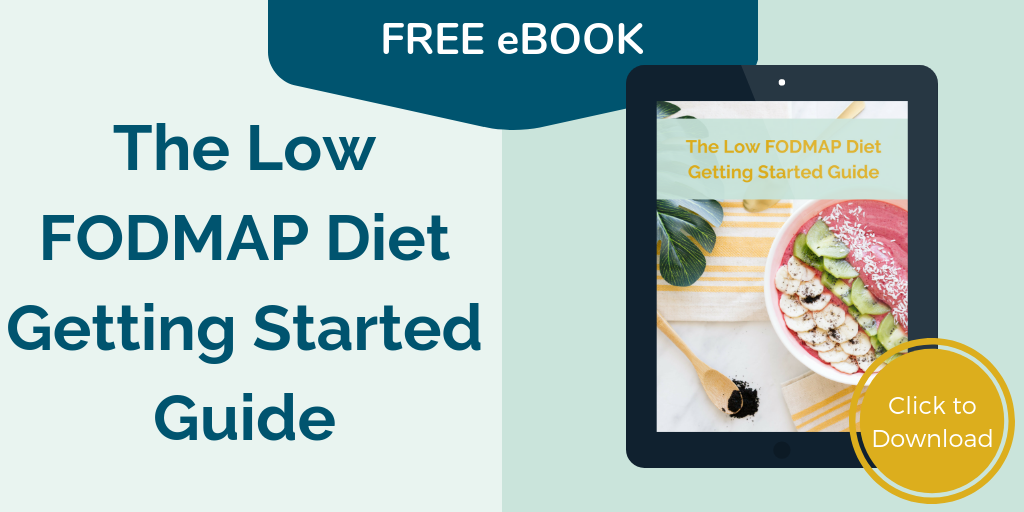What role does food serve in your life?
Does it bring you happiness and satisfaction, or is it a source of stress and worry about making the right choices? Maybe you spend a lot of time trying to figure out how to use food to improve different aspects of your life, like sleep, energy levels, or maybe even athletic performance?
Food is so much more than just nutrients. Sure, food has the potential to fuel and energize us, but it also brings with it the power of discovery, prevention and healing! Maybe best of all, food has this amazing power to bring us together.
As a registered dietitian, I was excited to see the theme chosen for this year’s Nutrition Month: Unlocking the Potential of Food. I think it’s such a great topic because it’s so easy to reduce food down to just something we have to eat to keep us going. But it’s really so much more than this!
P.S. Did you know there is a difference between a registered dietitian and a nutritionist? We get this question a lot, so here’s a link to a post we wrote that explains it all!
A lot of people think registered dietitians only work in hospitals, but our roles can be so much more diverse. Did you know that there are dietitians who work in other areas of nutrition too? You can find dietitians working in many places, including hospitals, grocery stores, doctors office, family health teams, community health centres, universities, rehabilitation facilities, seniors’ residences and long-term care settings? And a growing number of dietitians like me are branching out into the new world of offering our services and expertise to you online too! Some of us have courses and others do virtual counselling. Some even have online nutrition coaching programs, like my CLAIRITY program! Pretty cool, huh?
Regardless of where we work, we all have one thing in common: We love food!! Whether we are counselling a patient recovering from a heart attack, teaching a cooking class or taking students through a tour of a grocery store, we are all passionate about the potential of food and its connection to health. It’s an exciting time in the world of nutrition and dietetics, and I’m so happy to be writing about this topic and sharing my perspective on unlocking the potential of food for Nutrition Month this year.

The Healing Power of Food for Digestive Health
As you know, in my practice as a digestive health dietitian, my mission is to help people struggling with IBS and IBD to identify their triggers and live the symptom-free life they’ve always wanted but never thought was possible. When you’re working with people on their digestive symptoms, food is always a BIG part of the discussion, both food as the reason for your symptoms and food as the potential solution. There are two questions I get all the time that I want to address before moving forward with this topic.
Does Food Cause IBS?
No! This is the first thing I need you to know. Please don’t blame your food choices at any point in life for causing your IBS. Food is an IBS symptom trigger, it is not responsible for causing the condition. We don’t know exactly what does cause IBS, but it is likely a mix of complicated factors, not just one thing. If we blame food, it’s hard to use it as part of our healing process, so let’s set the record straight and shift our relationship with food from a place of blame to a place of empowerment!
Can Food Cure IBS?
The short answer is no. Just like food doesn’t cause IBS, you also won’t be able to cure your IBS through diet or any number of supplements. What you can do is use the amazing power of food to manage your triggers and stop those uncomfortable digestive symptoms from ruining your life! This is exactly what me and my team can help you with in the CLAIRITY program.
You may have read online or elsewhere about all sorts of diets that are supposed to cure IBS and get rid of all your symptoms. The most popular ones are the Specific Carbohydrate Diet and the Low FODMAP Diet. I use the low FODMAP diet as a starting point with my clients because it is evidence-based. That means that it has been found to be effective in research studies, not just personal stories of success.
While I think the low FODMAP diet is a great place to start and can be really helpful for people with IBS, it really is a little more complicated than just cutting out high FODMAP foods from your diet forever and never having symptoms again. Do you know what I’ve seen in my experience working with clients? While high FODMAP foods might trigger symptoms in some, they might be totally fine for other people! Food definitely has the potential to heal, but it often requires an individualized approach to truly harness the full power of food, since everyone is unique and we don’t all respond in quite the same way to the same treatment.

Diet and IBS: How to Unlock the Healing Power of Food
So what’s the secret behind unlocking the healing power of food for digestive health and making the switch from having food be the cause of our symptoms, to using it in a way that actually reduces out symptoms? As someone who has overcome IBS myself, and who has worked with clients for over 5 years to help them do the same, I’ve come up with a tried and tested step-by-step system to help you do just this. Here are the basics:
Food and Symptom Journal
The first step to really unlock the healing potential of food is to critically assess where you are at now. What are your eating habits like now? How does your way of eating make you feel? How does it affect your energy, sleep, and bowel movements? Other symptoms like gas, bloating and abdominal pain? Keeping a detailed record of your meal timing, food choices, portion sizes, beverages and symptoms every day for a few weeks is the necessary first step to unlocking the healing potential of food. It will allow you and the health care providers you are working with to identify patterns, which is how you will identify what triggers your symptoms. I’ll give you a hint here: while triggers can be food-related, they can also be behaviour-related.
Identify Your Triggers
FODMAPs are common dietary triggers for IBS symptoms. These easily fermentable carbohydrates are found in a wide range of foods, and lots of foods that are typically thought of as healthy, like fruits and vegetables! This is where you can get into trouble with blaming your diet for causing your IBS. Certain foods that are blamed for all our health problems, like refined sugars and processed foods, while they might not be the best for our health, we don’t have any evidence to suggest that they alone are responsible for causing digestive problems. Maybe you eat a lot of fruits and raw veggies like salads, which would be the base of a diet any dietitian or health professional would applaud you for due to its health benefits! But too much of a good thing like fruits and lots of raw veggies can be really hard on our digestive system, especially if we have IBS. You can still eat all this healthy, good stuff while eating well for digestion, it’s just about eating the right amount for you and balancing out your diet with some lean proteins, plant proteins, digestive friendly dairy and grains!
Challenge FODMAPs
Once you’ve removed FODMAPs from your diet for a period of time and have implemented other strategies to improve digestion, you’ll likely be feeling pretty good and much closer to symptom-free! Now the trick is to slowly and strategically start adding potential triggers back into your diet. You do this one at a time so you can clearly see which foods cause symptoms. I say potential triggers because not all high FODMAP foods will cause you symptoms! You will likely find that certain groups of FODMAPs trigger symptoms for you, while others aren’t a problem at all. Once you figure this out you’ll be that much closer to unlocking the healing power of food.
Reintroduce FODMAPs
Now that you’ve gone through the challenge phase and you have an idea of which foods are safe for you, you start adding these foods back into your diet and keeping them there as a part of your normal rotation. This will increase the variety in your diet. And you know what variety is good for? Not only taste and enjoyment of your food, but a good ecosystem of healthy bacteria in your gut which is so important for digestive health!
Maintain Symptom Relief
The last step in unlocking the healing potential of food is to know and understand that the relationship between food and digestive health will always be a complicated one. Many people will find that once they get to a good place of symptom relief and are feeling good, something will change in their life and symptoms may come back even though their diet hasn’t change. This could be because you are going through a particularly stressful time, maybe you had a bit of a stomach bug and things aren’t quite the same, or maybe there is something else going on with your health. It’s always so important to continue to work with your doctor and the rest of your healthcare team through this process. When something like this happens, don’t be discouraged! You don’t need to start back at square one. Once you’ve gone through this process the right way, you’ll have all the tools and problem solving skills in your tool box to figure out what needs to change to get you back to feeling good.

Eating Out with IBS
I also wanted to take a quick minute to chat about the social aspects of food and its power to bring us together which is just as important as its ability to heal our gut! I think this topic is especially important for those of us with IBS and IBD, as our sometimes strict diets can really take over our lives and prevent us from sharing in meals with others, or engage in social eating while out at a restaurant! This can lead to us feeling really isolated and alone. It can be so hard to eat away from home when we are struggling with symptoms and trying to figure out what triggers our symptoms, and this can lead to a lot of stress.
I want you to know that it doesn’t have to be this way. Once you have clearly identified your triggers, and you know your tolerance threshold for different foods, it feels a little less scary to let someone else do the cooking and enjoy social eating again when you know exactly what your body can and can’t handle, and you have strategies in place to help you reduce the severity of symptoms if they do arise.
And it’s why I created the Low FODMAP Diet Getting Started Guide. It’s a short eBook that will help you better understand the Low FODMAP diet so you know what you need to know about FODMAPs and if this diet is right for you. Click here to get a copy emailed to you now.
I really love helping people everyday to unlock all the potential that food has to offer! I know first hand that all the joy of food can easily be stripped away when we have problems with our digestion. But it doesn’t have to be this way, and I’d love to show you how, my friend! If you’re interested in checking out one of our other Nutrition Month posts, take a look at this post all about portion sizes and the low FODMAP diet. If you’re interested in learning more about unlocking the potential of food, check out Dietitians of Canada’s Nutrition Month campaign for some great factsheets and other resources!
Yours in health,
Stephanie Clairmont


